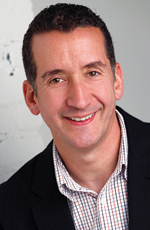 An Agent’s Take
An Agent’s Take
Cynthia Zigmund, founder of Second City Publishing Services, has extensive editorial experience in business books. She was publisher at Kaplan Publishing and also worked at Wiley, Irwin (now McGraw-Hill), and Van Nostrand Reinhold.
Authors need to realize that publishers don’t do everything they did in the past. If you’re not certain whether you should self-publish or sign on with a traditional publisher, reach out to authors and ask about their experiences.
A traditional publisher should provide a developmental edit, copyedit, and design of the interior and cover. If the book needs an index, the publisher will usually have one prepared and charge the cost against the author’s royalties. The publisher handles distribution, both brick-and-mortar and online, and also prepares the files for e-book formats, which can be time consuming. For these reasons, some authors will sign with a traditional publisher even if they are obligated to purchase books and understand they will get minimal, if any, marketing or publicity support. While the prospect of maintaining control and making all the decisions is appealing, you must recognize there’s a lot more to self-publishing than simply printing physical copies of a book.
If you don’t have an extensive platform, it’s probably not worth taking the time to find a publisher because so few editors will take a chance on your book. If you have previously self-published, you need to sell several thousand books within the first year to attract an agent or publisher. If you blog, you need thousands of regular readers. The publisher wants evidence that you’ve developed a following that will translate into book buyers.
The reality is that many authors trying to reach a targeted segment of readers, such as financial advisers or management consultants, can successfully self-publish. If you want to be treated like a professional, your book needs to look as if it were published by a traditional publisher. You can’t simply format a twenty-page document, hire a designer, and say you’re an author. The most successful self-published authors are willing to make an investment of time and money to produce a quality book. You also have to know how to use your network and promote to it.
Mirchandani’s experience with a publisher isn’t uncommon. That’s why it’s the author’s responsibility to communicate publicity and marketing plans long before publication. Ideally, the author and publisher should divide the efforts, but that doesn’t always happen. The author should decide the most effective use of time and budget and get input from the marketing team. One author I worked with put up a billboard. I didn’t even know what to say; it was a waste of money and didn’t boost book sales or his consulting business. Since Mirchandani already had a disappointing experience with Wiley, it was probably unrealistic for him to expect more marketing support for the second book.
If your goal is to be published by a traditional publisher but your platform is still modest, then self-publish and do everything you can to sell lots of copies. Then, when you have a track record of sales or media appearances, you can approach an agent or publisher for your next book.
I believe many authors need to revise their expectations. Remember that many commercially published books are flops. If your self-published book gets you more speaking gigs or several new clients, you should consider your book a success even if you only sell a thousand copies. Did your business increase by 25 percent after you published a book? All publishing is an investment and you must be willing to do it right. (It shouldn’t look like you printed your book at Kinkos.) If you’re self-publishing and it looks professional, readers won’t know the difference.
Too many authors want to short-circuit the self-publishing process. If you’re busy running a business, then you should hire an editor, a copyeditor, a designer, a proofreader, and an indexer so you’re able to produce a quality product. The most successful self-published authors invest time and money, seek advice from experienced insiders, and view the book as an integral part of their business.
 A Publicist’s Perspective
A Publicist’s Perspective
Rob Nissen, owner and CEO of Nissen Public Relations, worked in the publicity departments of major publishers including John Wiley and Grand Central Publishing before founding his own company. His work includes pitching to television, radio, and print as well as social media and booking events for authors.
Many people write books as a calling card for their business. They’re often looking for speaking and/or consulting opportunities. Initially, authors should focus on building their brand and their profile. When authors write for inc.com or entrepreneur.com, their brand is getting exposure. Authors need to get more visibility, even before the book is available. Once the book is available, authors can tweet specifically about the book.
Authors should develop a content strategy rather than simply a book strategy. A lot of what I do is create content—bylined articles or excerpts—for online venues. These outlets are not necessarily covering books but they are looking for content. There are more online opportunities because print magazines have shrunk in size and there are fewer book-review sections. Authors always want reviews, but they’re not likely to get them; getting a book mention in a feature piece or being included in a Q&A is the next best thing.
Media attention around the pub date is ideal but timing around book publicity is more complicated. Websites and bloggers are looking for material all the time and authors can comment on something in the news cycle, but arranging for a lengthy profile or feature can take months. Authors should:
• Start building a base on Twitter, LinkedIn, and other social media platforms at least six months before the publication date and become comfortable posting and sharing their content.
• Determine how to divide the book into small chunks that can be distributed to different outlets, such as finance, personal-finance, and insurance publications.
• Work their connections to get corporate speaking gigs. Start making deals to speak at a reduced fee in exchange for the venue’s purchasing books. If you don’t have speaking experience, you should make a free presentation for a client, or talk at a local networking event or even a library and have the presentation videotaped. This video can then be shown to other venues or used to approach speakers bureaus.
• Pitch local media first. Get experience in smaller markets; you can use the tape to pitch national media. Also, think about the specific audience for your book: If the book is about health care, then pitch health care–industry publications. Focus on the particular market instead of exclusively targeting national outlets.
While authors can handle their own publicity, there are advantages to working with a publicist. Experienced publicists know the top bloggers in a particular category or the most popular sites in the subject area of the book they’re working on. I focus on these outlets as well as the more prominent publications. Publicists need to pitch the author and book in different ways to different publications. For example, Inc., Wired, and Fast Company cover similar subjects but have unique approaches. A publicist helps the author figure out the right pitch so the writers and editors get exactly what they want.
Authors and publicists need to be creative. A national newspaper isn’t likely to be interested in a new corporate-management book, but if you’re an author who can offer insight into developments at Yahoo or Apple, then you can be interviewed as an expert and the book will be mentioned. Authors should be prepared to research talking points, especially for a national show. And they shouldn’t overlook small-circulation outlets since any publicity can only help spread the word about their book.
Your promotion efforts never really end. You have to continue to look for opportunities to mention your book. You can offer yourself as an expert on ProfNet or contribute to a website. Especially if you plan to write other books in the future, you must constantly put yourself out there so that you’re a go-to source for the media.
Debra W. Englander is a New York–based freelance editor and writer. She managed a business-book program at John Wiley & Sons for nearly seventeen years and previously worked at Money magazine and Book-of-the-Month Club. She has written about business and books for numerous publications, including USA Today, Good Housekeeping, and Publishers Weekly.








